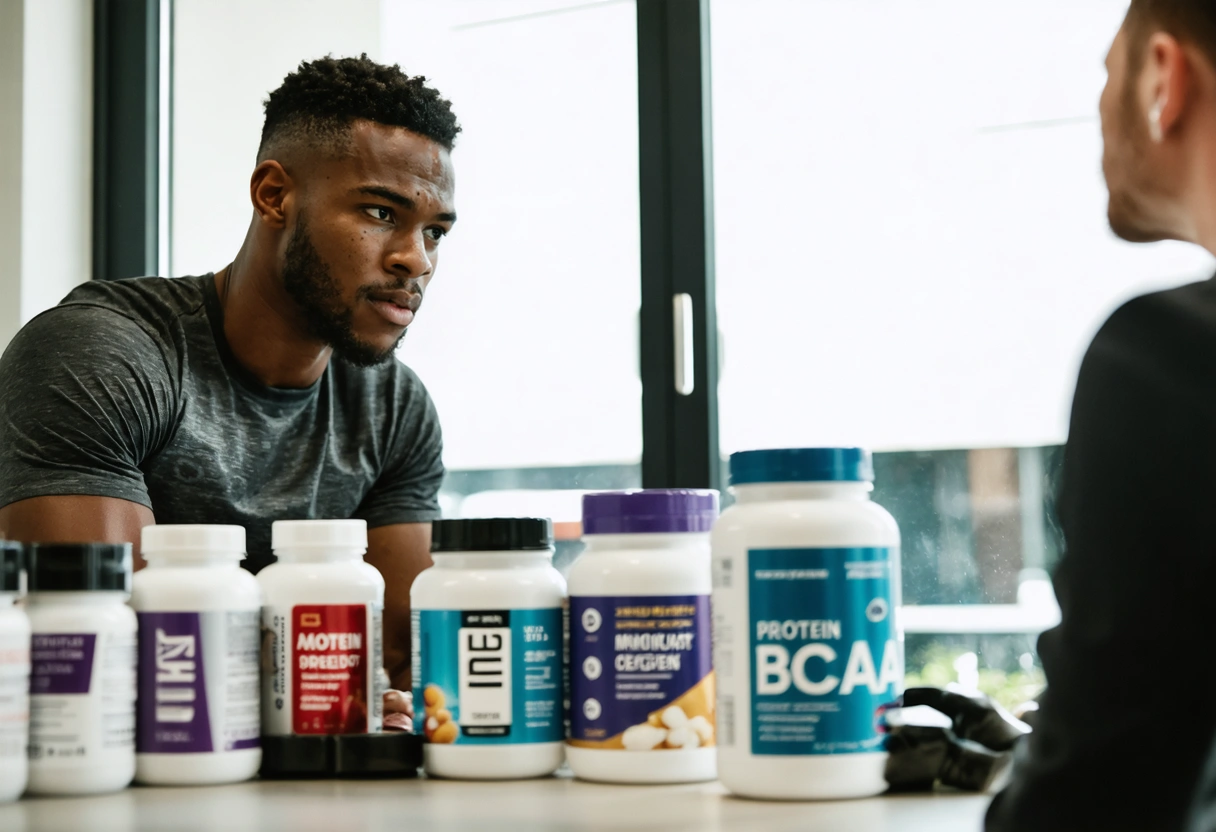Introduction to Recovery Techniques for Young Boxers
Boxing is a physically demanding sport that requires immense strength, endurance, and agility. For young boxers, recovery is crucial to ensure that they can continue to train effectively while minimizing the risk of injury. One of the fundamental components of recovery is nutrition, particularly when it comes to muscle repair and growth. In this blog post, we will explore various recovery techniques for young boxers, emphasizing the role of nutrition in supporting their athletic endeavors.
Nutrition plays a pivotal role in how quickly and effectively young athletes recover from intense training sessions. A well-balanced diet, tailored to the specific needs of a young boxer, can significantly enhance muscle repair, growth, and overall performance. Let’s delve deeper into the different aspects of nutrition and recovery for young boxers.
The Importance of Proper Nutrition for Muscle Repair
For young boxers, proper nutrition is not just about fueling workouts; it’s about providing the body with the essential nutrients needed for muscle repair and growth. After a strenuous boxing session, muscles undergo microscopic tears, and the body requires specific nutrients to repair these tears and build stronger muscle fibers.
Protein is the cornerstone of muscle repair. Consuming an adequate amount of protein after training sessions can significantly enhance the muscle recovery process. Protein-rich foods such as lean meats, eggs, and dairy products provide the amino acids necessary for repairing damaged muscle tissue. According to a comprehensive guide on protein intake, young athletes should aim for a protein intake that supports their high activity levels, which can vary depending on individual needs and goals.
In addition to protein, carbohydrates play a crucial role in recovery. Carbohydrates replenish glycogen stores that are depleted during training, providing the energy needed for subsequent workouts. A balanced intake of carbohydrates from whole grains, fruits, and vegetables ensures that young boxers have the energy reserves necessary for optimal performance and recovery.

Hydration: A Key Element in Recovery
Hydration is often overlooked, yet it is a vital component of recovery for young boxers. Dehydration can impair physical performance, delay recovery, and increase the risk of injuries. Therefore, maintaining proper hydration levels is essential for young athletes.
During intense training, boxers lose fluids through sweat, which can lead to a decrease in blood volume and an increase in body temperature. To counteract these effects, young boxers should focus on consistent hydration before, during, and after training sessions. Water is the primary fluid needed, but in cases of prolonged training or extreme heat, sports drinks with electrolytes can be beneficial. The Mayo Clinic provides insights into the importance of hydration and offers guidelines for daily water intake based on activity levels and environmental conditions.
The Role of Micronutrients in Muscle Growth
While macronutrients like protein and carbohydrates are crucial for recovery, micronutrients also play a significant role in muscle growth and overall health. Vitamins and minerals support various bodily functions, including energy production, immune function, and bone health, all of which are essential for young boxers.
Calcium and vitamin D are particularly important for bone health, reducing the risk of fractures and injuries. Young boxers should ensure they consume adequate amounts of these nutrients through sources such as dairy products, leafy greens, and fortified foods. Additionally, iron is critical for transporting oxygen to muscles, which is essential for endurance and performance. Foods rich in iron, such as red meat, beans, and spinach, should be included in the diet.
The role of antioxidants in recovery should not be underestimated. Vitamins C and E, found in fruits and vegetables, help combat oxidative stress caused by intense training, promoting faster recovery and reducing inflammation. For more information on the importance of antioxidants, visit this detailed resource by the National Institutes of Health.
Timing and Meal Planning for Optimal Recovery

The timing of nutrient intake is crucial for maximizing recovery and muscle growth. Consuming a balanced meal or snack within 30 to 60 minutes after training can significantly enhance glycogen replenishment and muscle protein synthesis. This post-workout window is often referred to as the “anabolic window,” a crucial time for nutrient absorption.
A post-workout meal should include a combination of carbohydrates and protein. A practical example could be a turkey sandwich on whole-grain bread with a side of fruit. This meal provides the necessary macronutrients to jumpstart the recovery process. For young boxers, understanding the importance of meal planning can lead to more effective training sessions and improved performance.
Pre-training nutrition is equally important. A meal or snack consumed 1 to 2 hours before training should consist of easily digestible carbohydrates and a moderate amount of protein. This ensures that young boxers have the energy needed for an intense workout without feeling weighed down. For more tips on pre- and post-workout nutrition, check out this informative guide from the Academy of Nutrition and Dietetics.
Supplements: A Consideration for Young Boxers
While a well-rounded diet should provide all the necessary nutrients for recovery, some young boxers may consider supplements to support their nutritional needs. It is important to approach supplementation with caution and under the guidance of a healthcare professional or a registered dietitian.
Common supplements for athletes include protein powders, creatine, and branched-chain amino acids (BCAAs). Protein powders can be a convenient source of high-quality protein, especially for young boxers who struggle to meet their protein needs through food alone. Creatine is known to enhance strength and performance, while BCAAs may help reduce muscle soreness and improve recovery. However, it’s essential to evaluate the necessity, safety, and effectiveness of these supplements individually.
Young boxers should prioritize obtaining their nutrients from whole foods before considering supplements. For those interested in supplementation, the National Center for Biotechnology Information offers an extensive database of peer-reviewed articles on dietary supplements and their impact on athletic performance.

Balancing Nutrition and Training for Young Boxers
Recovery techniques, especially those focusing on nutrition, are essential for young boxers aiming to enhance their performance and prevent injuries. By understanding the importance of macronutrients and micronutrients, staying hydrated, and optimizing the timing of meals, young athletes can significantly improve their recovery process.
While supplements can be beneficial in certain cases, whole foods should always remain the foundation of a young boxer’s diet. By prioritizing a balanced diet rich in nutrients, young boxers can ensure they are giving their bodies the best possible chance to recover, grow, and succeed in the demanding sport of boxing.
Incorporating these nutritional strategies into their training regimen will not only aid in muscle repair and growth but also set the foundation for long-term athletic success and overall health. For more information on how to optimize nutrition for young athletes, consider exploring additional resources and consulting with professionals in sports nutrition.
Practical Tips for Implementing Nutritional Strategies
Implementing effective nutritional strategies for young boxers involves more than just understanding the theory; it requires practical application tailored to individual needs and training schedules. Here are some actionable tips to help young boxers integrate these nutritional strategies into their daily routines.
1. Meal Prep and Planning: One of the most effective ways to ensure consistent nutrient intake is through meal prep and planning. By preparing meals and snacks ahead of time, young boxers can avoid the temptation of reaching for less nutritious options. Planning meals that are balanced in macronutrients and rich in vitamins and minerals can help maintain energy levels and aid recovery.
2. Keep Hydration Handy: Encourage young boxers to carry a water bottle throughout the day. This serves as a constant reminder to hydrate regularly. Infusing water with fruits like lemon or berries can make hydration more appealing, especially for those who find plain water less enticing.

3. Monitor Portion Sizes: Understanding portion sizes is crucial for young athletes who need to fuel their bodies without overeating. Teaching young boxers to listen to their hunger cues and eat until satisfied, rather than full, can help maintain a healthy weight and optimize performance.
4. Educate on Nutrient Timing: Parents and coaches can educate young boxers on the importance of nutrient timing. Highlighting the benefits of consuming a balanced meal before and after training can reinforce the idea of food as fuel, encouraging them to make mindful food choices.
The Role of Rest in Recovery
While nutrition is a cornerstone of recovery, it is important to acknowledge the role of rest in the recovery process. Adequate rest, including quality sleep, is essential for muscle repair and growth. During sleep, the body releases growth hormones that facilitate muscle recovery and repair, making it a critical component of any young boxer’s recovery strategy.
Encouraging young boxers to establish a regular sleep schedule can help ensure that they receive the restorative benefits of sleep. This includes going to bed and waking up at consistent times each day, creating a sleep-conducive environment, and minimizing screen time before bed. According to the National Sleep Foundation, children and teenagers require more sleep than adults, typically 8 to 10 hours per night, to support their growth and development.
Building a Supportive Environment
Creating a supportive environment is key to helping young boxers succeed in their nutritional and recovery goals. This includes fostering a positive attitude toward food and recovery among coaches, parents, and teammates.

Coaches can play a significant role by setting a good example and emphasizing the importance of nutrition and recovery in training programs. They can also provide resources or invite nutrition experts to speak with young athletes about the benefits of a balanced diet.
Parents can support their young athletes by preparing nutritious meals and snacks, encouraging hydration, and promoting a balanced lifestyle that includes rest and relaxation. Open communication about dietary needs and preferences can help parents tailor their support to meet individual requirements.
A supportive peer environment can also motivate young boxers to adhere to their recovery strategies. Training alongside teammates who share similar goals and values can reinforce the importance of nutrition and recovery in achieving athletic success.
The Balanced Approach to Recovery for Young Boxers
In conclusion, the recovery techniques for young boxers encompass a holistic approach that integrates nutrition, hydration, rest, and a supportive environment. By prioritizing a balanced diet rich in essential nutrients, young athletes can enhance their muscle repair and growth, improve performance, and reduce the risk of injury.
Encouraging practical strategies such as meal prepping, monitoring portion sizes, and educating on nutrient timing can empower young boxers to take charge of their nutrition and recovery. Acknowledging the importance of rest and building a supportive network further contributes to their overall well-being and athletic success.
Ultimately, by adopting these comprehensive recovery techniques, young boxers can lay a solid foundation for their future in the sport, ensuring that they remain healthy, energized, and ready to tackle the challenges of the boxing ring.

